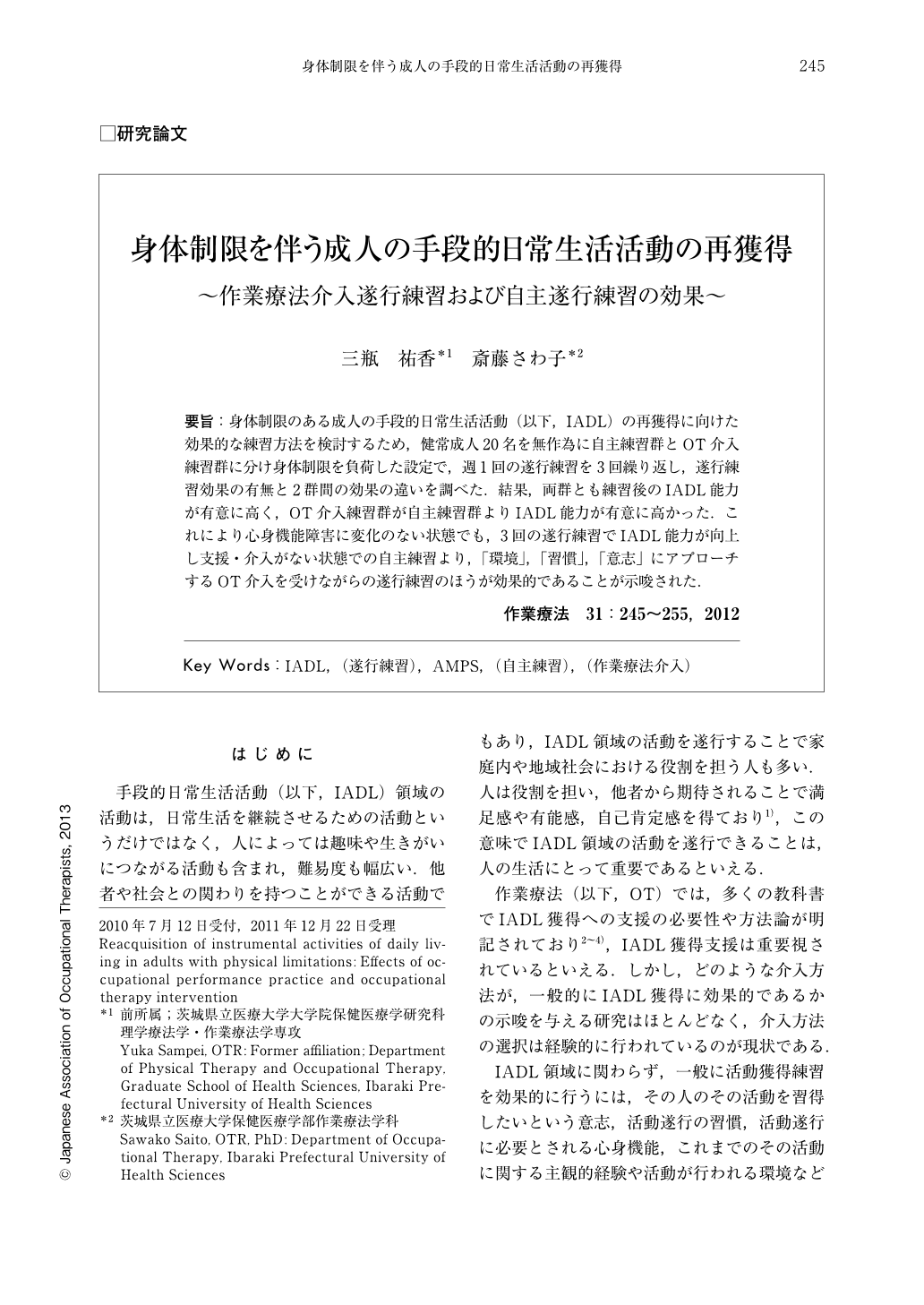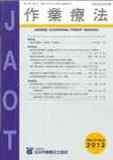Japanese
English
- 販売していません
- Abstract 文献概要
- 1ページ目 Look Inside
- 参考文献 Reference
- サイト内被引用 Cited by
要旨:身体制限のある成人の手段的日常生活活動(以下,IADL)の再獲得に向けた効果的な練習方法を検討するため,健常成人20名を無作為に自主練習群とOT介入練習群に分け身体制限を負荷した設定で,週1回の遂行練習を3回繰り返し,遂行練習効果の有無と2群間の効果の違いを調べた.結果,両群とも練習後のIADL能力が有意に高く,OT介入練習群が自主練習群よりIADL能力が有意に高かった.これにより心身機能障害に変化のない状態でも,3回の遂行練習でIADL能力が向上し支援・介入がない状態での自主練習より,「環境」,「習慣」,「意志」にアプローチするOT介入を受けながらの遂行練習のほうが効果的であることが示唆された.
The purpose of this study was to examine the effectiveness of occupational performance practices and occupational therapy interventions for reacquisition of instrumental activities of daily living (IADL) in adults with physical limitations. To eliminate confounding variables (e.g., cognitive and psychological problems, other professional interventions, and remedying impairments), our study used 20 healthy adults as participants who were given temporary physical limitations. Participants were randomly divided into two groups: Anoccupational therapy intervention group and a self practice group. The participants in both groups practiced self-selected IADL tasks three times, once a week. The difficulty level of the tasks was structured to require the participants to perform with either no or a minimum of assistance, but instead using physical effort. The Assessment of Motor and Process Skills (AMPS) was used to measure the change of IADL abilities.
The results revealed that occupational performance practices were effective in improving the abilities of IADL in both groups. It was also found that occupational therapy intervention was more effective than practicing in improving the abilities of IADL. This study indicated that occupational performance practice with occupational therapy intervention is effective for reacquisition of IADL ability, even under conditions with no impairment remedy.

Copyright © 2012, Japanese Association of Occupational Therapists. All rights reserved.


